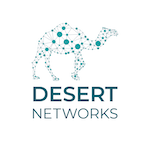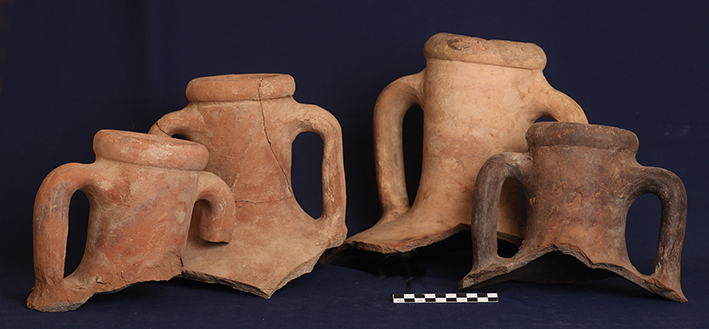|
|
|
Call for papersCall for papers--Submission deadline is February 15. The conference will take place October 11-15, with each day dedicated to a single panel using the Zoom webinar platform. The deadline to submit a title and 250-word abstract is February 15, 2021. Participants will be notified of the status of their submission by March 1. We welcome submissions from junior and senior scholars, including advanced graduate students and postdoctoral scholars. We invite papers that engage the following themes and topics: Session 1: Quantifying the desert economy This session focuses on the application of data-driven perspectives to economic questions about the Eastern Desert. Special emphasis will be placed on methods for quantifying production and consumption in desert communities, in an effort to fully integrate archaeological evidence into our understanding of the ancient economy. Papers might investigate the scale of investment in productive infrastructure, particularly in mining and quarrying; the commodification of goods produced in the desert and the valuation and availability of daily needs such as cloth, charcoal, and perishable foodstuffs; and the control and rationing of water and other important sustaining resources. This session will set the tone for the workshop as a whole in its attention to material archaeological evidence and data-based analyses. Session 2: Material itineraries This session concerns the circulation of objects and materials within the Eastern Desert. Rather than focusing on commodities that are being transported across the desert, destined for other locations, the discussion will center on the lives and afterlives of both imported and locally-produced things that were consumed in the desert context. Topics include the use, reuse, and discard of objects at desert sites, the reconstruction of itineraries for the circulation of particular commodities, and the distribution of objects produced specifically for desert travelers, such as soldiers’ supply kits. Of special interest are papers focusing on particular classes of objects (ceramic vessels, figurines, coins, beads), and on the identification of perishable goods in the archaeological record. Session 3: Economic networks Ptolemaic and Roman trade across the Eastern Desert involved the creation and maintenance of physical and social networks that facilitated safe and efficient movement of things and people. This session welcomes papers on the relationship between resident communities and economic institutions, as well as the structures of production and supply that provisioned desert communities. How were local suppliers integrated into broader economies of desert trade? Were these relationships privately arranged, or state-directed? What necessities of daily life did the inhabitants of mines, garrisoned outposts, and other semi-permanent communities provide for themselves, and how were they supplied with the rest? Discussion will focus on the material evidence for these logistical considerations. Session 4: Journeying and the economy of movement Papers in this session will revolve around theoretical and methodological approaches to the archaeology of travel and traversed desert landscapes. The increasing availability of data from archaeological surveys in the Eastern Desert makes it possible to incorporate information about “offsite” behavior into our understanding of desert networks. Topics appropriate for this session include landscape approaches to human movement, methods for modeling different schema of travel (caravans, small groups, donkeys, camels, etc.), techniques and archaeological signatures of way-finding, and investigations of the impact of roadside behaviors such as camping, graffiti-making, and cult observance on desert networks more broadly. Session 5: Economic diversity in the Graeco-Roman period in comparative perspective The chronological scope of this conference takes in approximately 800 years of activity in the Eastern Desert. Rather than viewing the evidence as belonging to a unified “Greco-Roman” cultural and political context, the goal of this session is to identify and discuss shifting patterns of behavior throughout the Ptolemaic, Early Roman, and Late Roman periods. Papers might focus on changing technologies of travel and transport, the creation or abandonment of routes, shifting engagement with markets and institutions, and changing social dynamics of desert life. Ultimately, the discussion should contribute to a more granular and nuanced understanding of chronological trends in the Greco-Roman Eastern Desert. Papers that engage this period in comparison with older evidence (Old Kingdom, New Kingdom, etc.) are also welcome. Important information for participants: Abstracts and papers may be submitted in English, French, or German while we ask that conference discussion and presentations take place in English. Please note: participants will be required to submit a provisional draft (5000 word minimum, no notes or bibliography required) of their paper by August 22 for predistribution to respondents and panel participants on September 12. Presenters will take part in a single session as a panelist and respondent, and are encouraged to attend the other panels so that their participation will enrich the discussion.Sessions are structured around a respondent’s presentation and discussion of each paper (15 mins) followed by an author response and general discussion by panel participants (30-40 minutes). Each author will also serve as a respondent for another paper in their assigned panel. Revised papers will be published in a peer-reviewed volume as part of the MOM [Maison de l'Orient et de la Méditerranée] Editions series and also on the digital platform OpenEdition Books. Please address all inquiries to Darcy Hackley (darcy.hackley@mom.fr) and Jennifer Gates-Foster (jgatesfoster@unc.edu).
|



